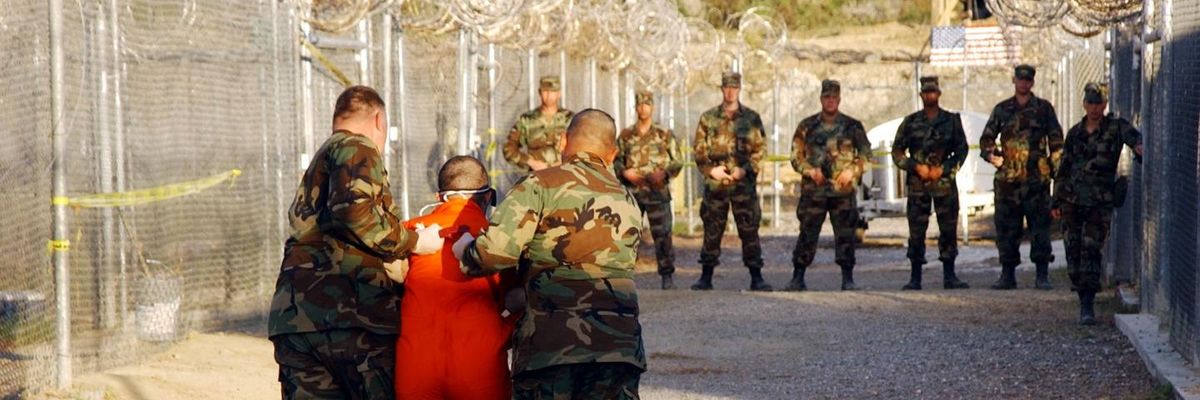Since the age of 23, Tariq Ba-Odah has been detained at the U.S. prison facility at Guantanamo Bay. Never charged with a crime, Ba-Odah went on hunger strike eight years ago to protest his indefinite detention, as well as the brutal treatment he is alleged to have suffered at the hands of his captors.
Now a 36-year-old man, Ba-Odah weighs less than 75 pounds. Despite having been cleared for release by a multi-agency review board in 2009, he remains behind bars with his release still a subject of legal wrangling by the Obama administration. In response to his rapidly deteriorating physical condition, his lawyers recently filed a petition for habeas corpus, citing the U.S. government's legal obligations to free seriously ill prisoners.
Last week, Justice Department lawyers asked for an extension in the deadline to respond to his habeas filing. A New York Timesarticle published at the time cited an interagency conflict between the State Department and Department of Defense as contributing to Ba-Odah's continued legal predicament. An article published Monday by the Daily Beast, citing anonymous White House sources, purported to explain the nature of this dispute further, suggesting that Defense Secretary Ash Carter is refusing to sign release orders for the 52 Gitmo prisoners who have been cleared for repatriation or resettlement, not wanting to take responsibility for their possible future actions.
Both the Department of Justice and the Department of Defense declined to comment to The Intercept on the specifics of Ba-Odah's case, while the DoD stated, "We are taking all practicable steps to reduce the detainee population at Guantanamo. ... Unfortunately, this process can be slowed unnecessarily by burdensome legislative provisions."
Omar Farah, a lawyer with the Center for Constitutional Rights, which is representing Ba-Odah, says that the responsibility for his continued incarceration lies with President Obama. "For so long the president has complained that Congress has tied his hands on Guantanamo, but this is a case where he could directly and unilaterally instruct the Department of Justice to not contest Ba-Odah's habeas petition and he has refused to do it," Farah says. "We will know how serious Obama is on Friday when the Department of Justice either agrees not to contest Ba-Odah's case, or fights on Obama's behalf to hold him at Guantanamo even longer despite his desperate condition."
Read the full article at The Intercept.

